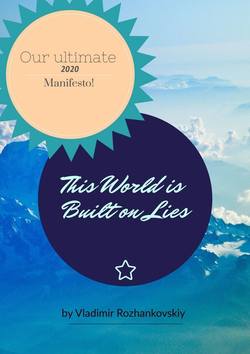Читать книгу This World is Built on Lies - Vladimir Rojankovski - Страница 6
The Ubiquitous “Reciprocity”
ОглавлениеIn 2011 some 222 thousand Russian tourists visited the USA. In May 2017 the number of tourist visas (B-1/B-2) issued to Russians plummeted to only 14 thousand (annualized 168 thousand). In October, this figure dropped to only 6.5 thousand (annualized 78 thousand), and for the first time travelers the U.S. embassy interview waiting time increased to between 85 and 300 days, which, in turn, further undermined the Russian travelers’ interest in visiting America. The reason for this was the September 2017 mutual visa restrictions due to the exchange of expulsions between the Russian and the US diplomats in the aftermath of exchange of sanctions between Russia and the United States.
As I mentioned above, another painful issue of artificial reciprocal alienation became the mutual hiking of the entry visa fees. In 1990, the price of the US single entry visa for Russians was only $45 whereas at the highest point of the mutual diplomatic war it rose to a whopping $303 per application!
From the beginning of 2019, Russian citizens were required to pay an additional fee for obtaining a multiple-entry visa to the United States. The U.S. entry visa price increased from $160 to $303. The changes badly affected demand for the business and tourist trips to the U.S. The increased fee for a visa was based on the principle of “reciprocity” – the same amount is paid by American citizens for a visa of the Russian Federation. One thing to consider: Russian average monthly salary is $450 per month, and the ruble exchange rate collapsed from 32 per dollar as of end-2013 to more than 60 per dollar as of end-2019.
We can’t keep up with this doomed tug of war. Neither I, nor my parents across the ocean wish to endure such barbaric ways to carry out diplomatic disputes.
Now let’s admit that the political scene is in no way better than the shaky state of the global economy. Thus, a highly repercussive article devoted to the widening gap between expectations and reality among the Russian post-millennials appeared on January 9, 2020 in the Financial Times. The material was entitled “Generation Putin: how young Russians view the only leader they’ve ever known”.
It rightfully points out that “…Putin’s Kremlin has sought to create a generation largely numb to politics, through the repression of opposition movements, a propaganda-heavy media machine and a cult of personality.”
Even more: “Those who seek change from Putin have found they must compete against not just the might of the Kremlin and the truncheons of the riot police but also the apathy common among the vast majority of their fellow youth – a generation raised on a strict diet of political indifference”.
The FT claims to have interviewed almost 50 young Russians, all aged between 18 and 25 who live in Moscow, St Petersburg, Siberia and beyond. So this must be quite a representative sampling.
Indeed, by most calculations, Russia’s economy shrank by 60 per cent between 1991 and 1999, a bigger contraction than during WWII, and caused a huge domestic plunge in the birthrate, a spike in mortality and an emigration boost. There is only one remotely comparable example – the situation in Syria between 2010 and now.
